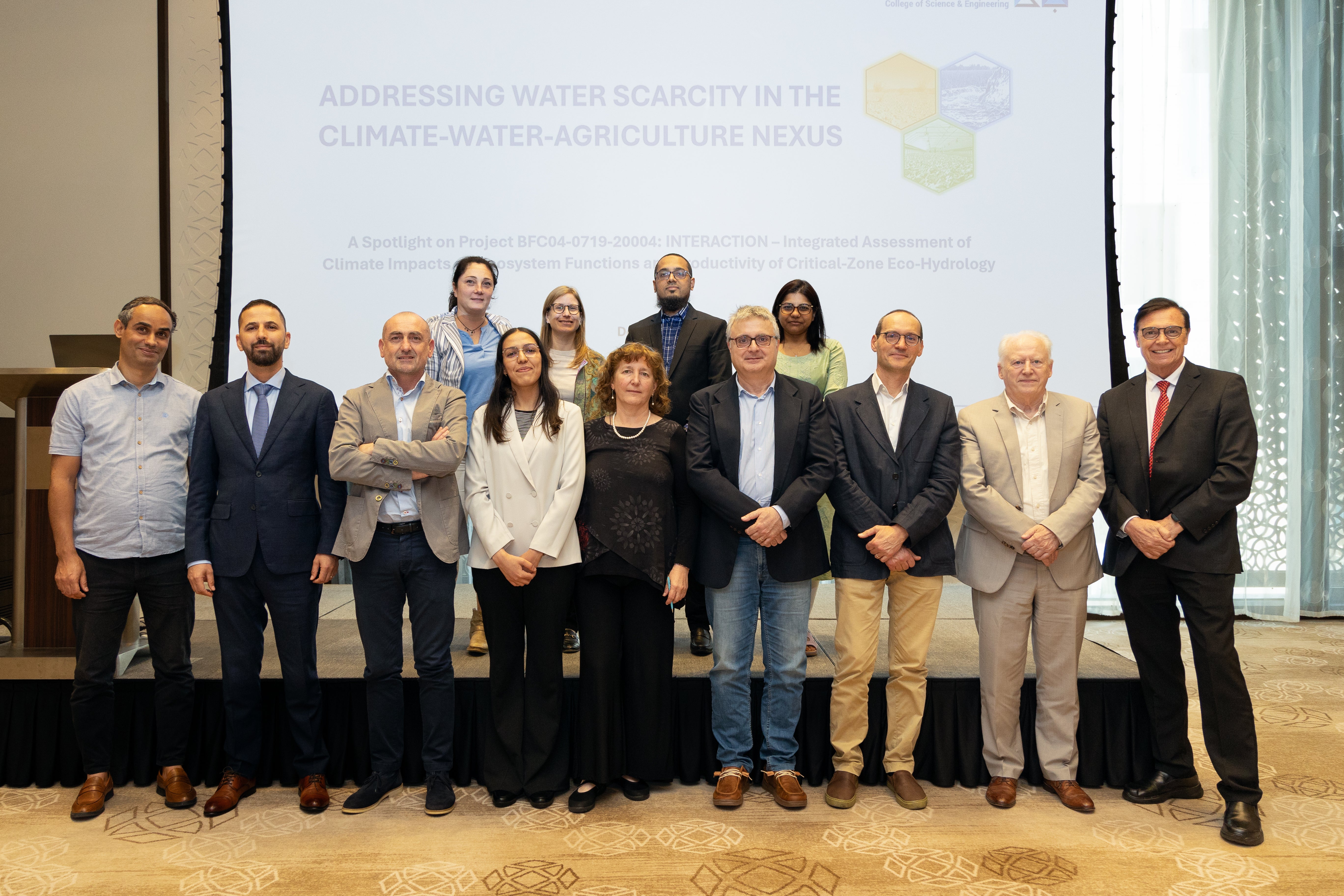Participants from around the world discussed interconnected challenge of water scarcity, climate change, and agriculture

Issues impacting the climate-water-agriculture nexus provided the backdrop for a recent symposium organized by Hamad Bin Khalifa University’s (HBKU) College of Science and Engineering (CSE).
Held February 18-20, Addressing Water Scarcity in the Climate-Water-Agriculture Nexus brought together experts, researchers, and other stakeholders to discuss and exchange ideas on an issue of critical importance to Qatar and other hot arid countries. The symposium cast particular light on Project BFC04-0719-200004: INTERACTION – Integrated Assessment of Climate Impacts on Ecosystem Functions and Productivity of Critical-Zone Eco-Hydrology, a Belmont Forum consortium project involving research teams from Qatar, Italy, and the United States of America. Central to the symposium's theme, the project underscores the importance of integrated assessments in understanding and addressing the multifaceted challenges posed by water scarcity.
Besides representatives from HBKU’s CSE and Qatar Environment and Energy Research Institute (QEERI), Addressing Water Scarcity in the Climate-Water-Agriculture Nexus featured distinguished speakers from the National Research Council of Italy and Qatar University. Insights were also provided by attendees from the Arab Youth Climate Movement Qatar, Euro-Mediterranean Center on Climate Change (CMCC), and others.
Speaking after the symposium, Dr. Adel Elomri, Associate Professor, CSE, and Lead Principal Investigator of the Qatar Research Team, said: “This event underscored the importance of developing holistic approaches for addressing the interconnected challenge of water scarcity, climate change, and agriculture. These can only be achieved by bringing together experts and stakeholders that fully understand the magnitude of one of the most pressing problems facing humanity. We’re confident that the symposium laid foundations for informed strategies and actions that mitigate the impacts of water scarcity while advancing sustainable groundwater management practices in water-scarce regions.”





